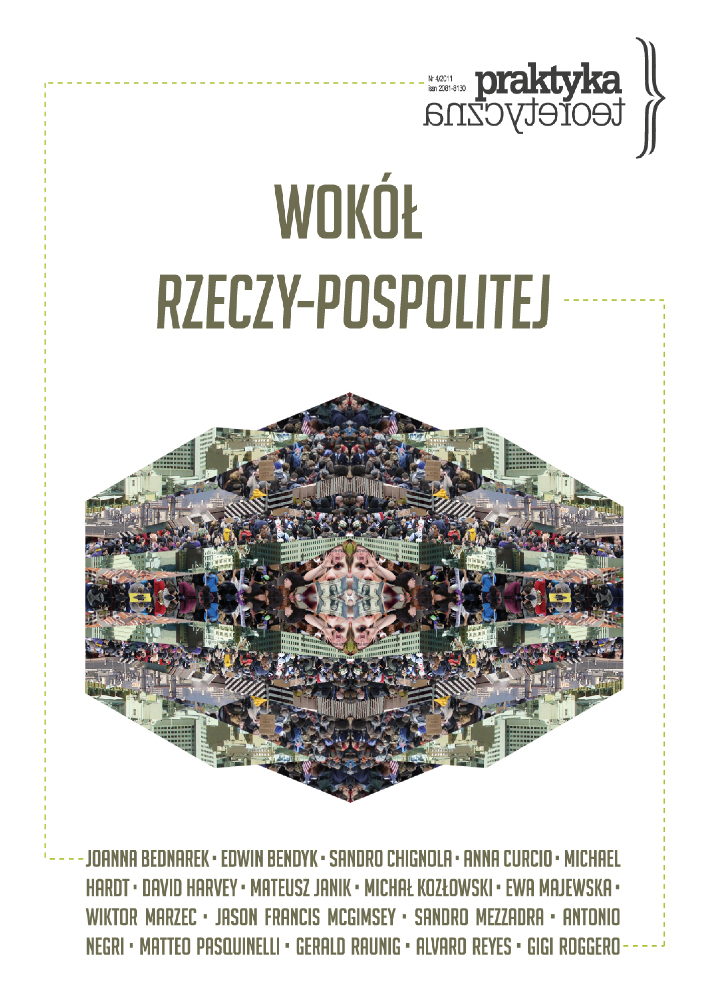Abstract
Important element which funds the base of Foucaultian social science is his thesis on the locality of power, on its material and corporeal characteristics. We are discussing here his very relationship with capitalism, and, indirectly, with Marx himself. Foucault claims, that power has no center and it is not commanded from any kind of headquarter. That has enormous epistemic, as well as political consequences. Foucault stays suspicious to systemic thinking, if we consider system following Hegel, that is, both a point of departure and a point of arrival of research. His controversy with Marxism has many levels, but one of the most important refers to the issue of power: system of power does not have its center, which according to Marxists lays in the political economy, and it has no dualistic character, that is structure and superstructure.References
Foucault M. 1995. La fonction politique de l’intellectuel (1976). W Dits et Ecrits, t. 2. Paris.
Foucault M. 2000. Słowa i rzeczy: archeologia nauk humanistycznych. Gdańsk: Słowo/obraz terytoria.
Foucault M. 1999. Kim jest autor?. W Powiedziane, napisane: szaleństwo i literatura. Warszawa: Wydawnictwo Aletheia.
Foucault M. 1998. Trzeba bronić społeczeństwa: wykłady w Collège de France. Warszawa: Wydawnictwo Naukowe PWN.
Foucault M. 2001. Les mailles du pouvoir. W Dits et Ecrtis, t. 2. Paris.
License
“Theoretical Practice” seeks to put into practice the idea of open access to knowledge and broadening the domain of the commons. It serves the development of science, thinking and critical reflection. The journal is published in open-access mode under the CC-BY-NC-SA 4.0 license (detail available here: http://creativecommons.org/licenses/by-nc-sa/4.0/). Articles published in the journal may be freely distributed, stored, printed and utilized for academic and teaching purposes without restrictions.
They should not be, however, used for any commercial purposes or be reconstructed into derivative creations. Access to the journal may not be limited or offered for a fee by any third party.
Prospective authors are obliged to fill in, sign and send back the publishing contract compliant with the CC licencing. [PL.pdf, PL.doc, EN.pdf,EN.doc].
According to this contract, authors grant the journal a non-exclusive right to publish their work under the creative commons license (CC-BY-NC-SA 4.0) without any financial obligation on both sides of the contract.
Before submission authors should make sure that derivative materials they use are not protected by copyright preventing their non-commercial publication. Authors are responsible for any respective copyright violations.
